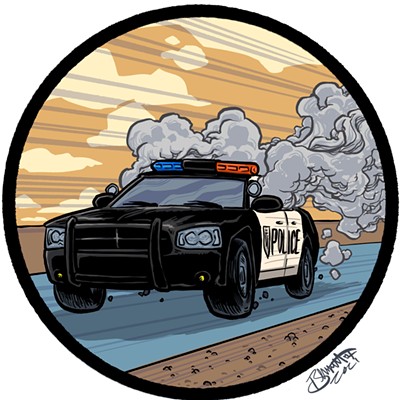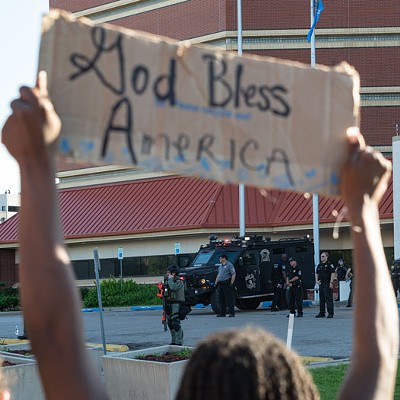A source of funding from the MAPS 3 project that had been promised by supporters of the project to go toward hiring 20 new police officers and 10 new firefighters is instead being used to pay for existing public safety employees because of the city’s budget shortfall.
The police and fire unions clashed with supporters of the MAPS 3 proposal last year because the proposal did not include a provision to fund public safety, with the unions organizing a campaign for the defeat of MAPS 3.
Shortly before the proposal was put before voters, city officials said part of a MAPS 3 use tax would go toward funding public safety. Use taxes are collected when items are purchased from out of the area and brought into the city. A use tax has accompanied each of the MAPS initiatives.
Proponents of MAPS 3 had stated during and after the campaign that the use-tax money would fund 20 new police officers and 10 firefighters.
“With MAPS, we can dedicate a portion of the ‘use tax,’ a fee collected during the construction phase of MAPS, to add 10 firefighters, 20 police officers and no layoffs,” Mayor Mick Cornett wrote in a Nov. 18, 2009, Oklahoma Gazette commentary.
However, the budget shortfall that has caused the city to eliminate a multitude of positions has also affected the police and fire departments.
City Manager Jim Couch said the city had to eliminate some positions last year because of the economic downturn, and the use-tax funds that were supposed to bring in new officers and firefighters are instead being used to pay to keep some on staff.
“Because we had the budget shortfall last year, several police and firefighters are being paid for by the use tax this year,” Couch said. “If economy turns around (more officers will be hired), obviously we’re still seeing revenues down to what they were two years ago.”
Gil Hensley, president of the Oklahoma City Fraternal Order of Police, also said it was the budget shortfall that caused the MAPS 3 use-tax funds to go toward retaining existing positions, rather than creating new ones, and that most officers doubted the funding promises of the MAPS 3 campaign.
“I don’t think any of our officers believed those statements when they were made,” Hensley said. “They knew those were statements made to encourage people to do a certain thing. Ultimately, you have to understand they did fund police positions through the use tax.”
The Oklahoma City Council approved a contract with the city’s police union at its Dec. 7 meeting that basically carried over most of the previous year’s contract, with only minor additions. The city has yet to come to an agreement with the firefighters’ union.
The use tax has brought in a total of around $6.6 million between when it went into effect in April and November, said Laura Johnson, the city’s finance director. The tax is expected to bring in about $10 million per year, a projected $8 million of which will be spent on public safety employees.
When the city was trying to balance the budget amidst declining revenue because of the economic downturn, the police and fire unions were asked to make concessions on pay and benefits but declined to, said Assistant City Manager M.T. Berry.
“In order for us to enter this year with a balanced budget, their options were to give us salary or benefit concessions,” Berry said. “If we would have been able to get those concessions, we would have been able to hire those additional officers and there would not have been any positions lost. Unfortunately, both unions did not want to do those concessions and the only alternative after that was to cut positions because we’ve got to have a balanced budget.”
The use tax has ultimately saved more positions than what it was intended to create, Berry and Johnson said. Rather than creating a total of 30 new police and fire positions, it is paying for 100 police and fire positions.
Using the use tax to keep the positions has strained the public safety equipment budget, since the tax normally would be used for that purpose, Johnson said, and once city revenue recovers, the tax dollars may fund equipment once again.
When revenues return to normal levels, the City Council will decide whether to eventually restore the use tax to its originally intended purpose of funding additional officers and firefighters.
“It is a policy decision on the part of the City Council what they’ll use the use tax for,” Johnson said. “There’s no requirement when you adopt that use tax that you have to devote it to anything. But public safety was such a high priority for them they chose to use it in that way.”
Johnson said everyone in the city is hoping for a return to fiscal normalcy.
“In a perfect world, if the economy didn’t tank the way it did, we wouldn’t be sitting here having this discussion, because the positions would have been added.”











